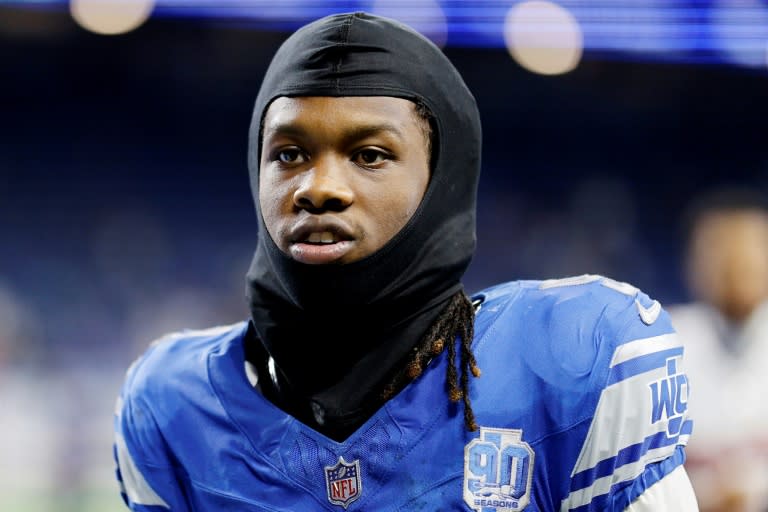
The NFL announced tougher penalties on Friday for players who bet on NFL games but reduced sanctions for those who bet on other sports while in the workplace or working.
The changes to NFL gambling policy were agreed upon with the NFL Players Association and led to the reinstatement on Monday of two players suspended for gambling violations — Detroit receiver Jameson Williams and Tennessee offensive lineman Nicholas Petit-Frere.
Both will return on Monday. They had each been banned for six games but will end up serving only a four-week suspension.
“The NFL and NFL Players Association share a longstanding and unwavering commitment to protecting the integrity of the game,” a join NFL-NFLPA statement said
“The NFL periodically reviews the gambling policy in consultation with the NFLPA and clubs to ensure it is responsive to changing circumstances and fully addresses this commitment.”
An NFL player who bets on his own team will now be suspended for at least two years while a player betting on any NFL game will receive at least a one-year suspension.
A permanent ban from the NFL will result for actual or attempted game fixing.
Providing inside information or tips will bring a suspension for a minimum of one year, as well any proxy or third-party betting.
The NFL trimmed punishments for betting on other sports while in the workplace or team-related travel with two-game bans for first-time offenders, six-game bans for second-time offenders and at least a one year suspension for a third violation.
Williams and Petit-Frere, who had been hit originally with six-game bans for betting on sports other than the NFL at an NFL facility, would receive only two-game bans under the revised policy, which applies only to players.
Issues used when considering penalties include history of wagers, self-reporting violations, cooperating with NFL investigations and accepting responsibility.
Other players suspended indefinitely for betting on the NFL are scheduled to apply for reinstatement after the 2023 season.
js/rcw
